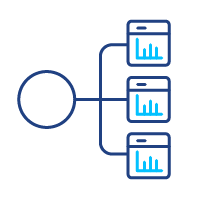What Is
Data Repatriation?
Data Repatriation simply means strategically moving your workloads from the cloud to environments that you control.
Whether using co-location, private data centers, or hybrid setups, you decide what stays in the cloud and what doesn’t. The payoffs include cost-efficiency, performance, and great flexibility.














